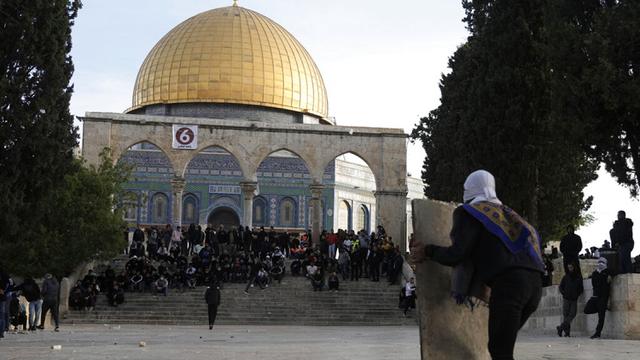UNAIR NEWS – Israeli attack in Palestine has happened many times. The targets included civilians, public facilities, and places of worship. The recent Israeli attack occurred in the al-Aqsa mosque.
Responding to the issue, the lecturer of International Relations UNAIR, Fadhila Inas Pratiwi MA does not condone and justify the attack. She said Israel’s actions are inhumane.
“The attack is a form of oppression. They targeted the civilians who were praying in the al-Aqsa mosque,” Fadhila said.
The Israel-Palestine conflict has been ongoing for more than five decades. The root lies in the case of territorial disputes.
“The area of Al-Aqsa mosque, in particular, is conflict-prone which is caused by some crucial issues. One of the issues is the location of Al-Aqsa in Jerusalem wherein lies three religious sites,” she added.

Jerusalem houses three religious sites of the Christian, Jew, and Islam. While Christian has the Church of the Holy Sepulchre, Jew has the Temple Mount, and Islam has the Dome of the Rock and Al-Aqsa mosque.
“Israel and Palestine are historically attached to Jerusalem. Both are still fighting over territory,” Fadhila explained.
Israel is stronger
Having a strong relationship with the US earns Israel good perks. One of the given aids is the sophisticated arms supplies.
“Israel has a relatively sophisticated military equipment compared to Palestine, which gives them more power. It has become one of the triggers for lasting forms of operation carried out by Israel. Moreover, the attacks were carried out when Muslims were celebrating their holiday,” she further said.
Various conflict resolutions
Various conflict resolutions have been made to resolve the dispute. One of them is the negotiations on the status of Jerusalem.
“However, in any negotiations, the territorial dispute, including Jerusalem, has never found a middle ground for both sides. Therefore, the conflict keeps growing, and it is inevitable,” Fadhila said.
UN action
UN took action by condemning the Israeli attack, aside from overseeing the course of the conflict and the negotiations carried out.
“Usually, when negotiations fail, the violence in the Israeli-Palestinian conflict will deteriorate. Therefore, the UN needs to oversee the process to minimize the impact of the agreement failure that has been made,” said the UNAIR lecturer.
Author: Fauzia Gadis Widyanti
Editor: Feri Fenoria









